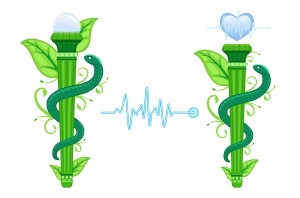I keep many different Natural Health Products in my medicine cabinet for my own health, as well as the health of my family. However, among those, I have found the top 5 that I would say have been quite beneficial to have in our home:
1. Tea Tree Oil
Tea Tree Oil can be useful to apply to the skin for relief of itching from bug bites, aiding with acne/pimple break outs, and relieving the symptoms of Athletes Foot. Please use caution with tea tree oil as it is an essential oil and should not be consumed orally, nor be used at greater doses than 5 drops.
2. Epsom Salts
Epsom Salts are great to keep in the home in case of muscular strains or injuries, skin infections, or simply to help you relax after a long day. They can be added to your bath or foot bath as needed.
3. Ginger Candies
It may seem odd to have candies in your medicine cabinet, but ginger candies can be useful when you or your child is having an “upset stomach”. They can help relieve feelings of nausea and help with digestion.
4. Arnica 200CH
Arnica is a homeopathic remedy that is used for anything causing trauma to the body. I will usually take a pellet of this for any event causing bruising, trauma, or shock to the body.
5. Castor Oil
Some of you might be thinking, “O great I heard about castor oil. No thank you I do not want to “clean out my system””. Well, that is not why this is on the list. I often apply castor oil to any joints or muscles experiencing any pain. I also use this if I am having a cold. I will apply the castor oil to my chest (kind of like Vicks) as well as to any lymph nodes that I find are inflamed. Another great use for castor oil is for reducing inflammation in the liver and promoting detox. For more information on Castor Oil and its use, please refer to my website, specifically to the section entitled Handouts, where there is a handout on “Castor Oil Packs”: https://www.plattsvilledoctor.ca/handouts-print-media/
Some of the information provided above may not be appropriate for everyone, please consult with your doctor before trying any of the above. If you are interested in Naturopathic Medicine and wanting a different approach to your health care needs, please book an appointment with Elisha Cook at the RSNC today and let me help you achieve your health goals.


